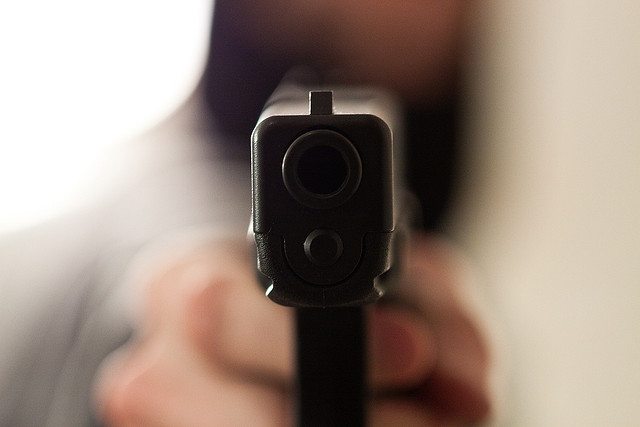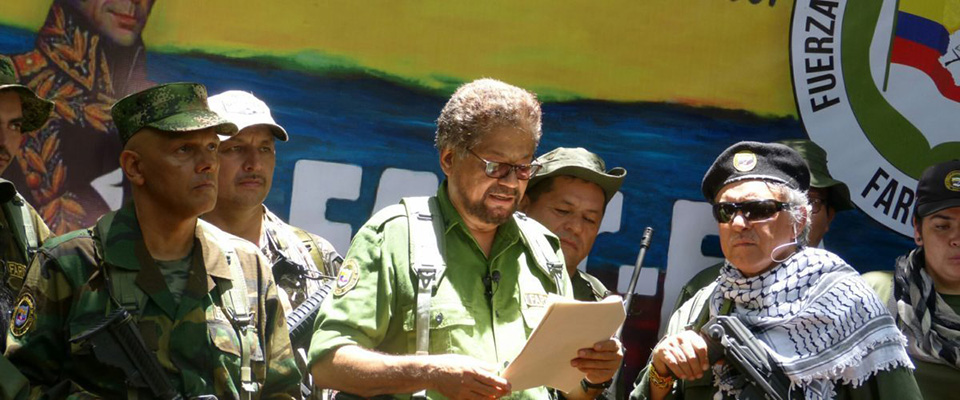It’s not all canezalos and candles; the festive season in Bogota also heralds a jump in crime. We examine the phenomenon and how to avoid becoming a victim of crime at Christmas.
In the time it takes to read this article, another four people in Bogota will have their mobile phones stolen. According to recent figures, nearly 360,000 phones were stolen between January and September in Bogota alone.
At no time of the year is this kind of crime more prevalent than in the lead up to Christmas. The festive season is a time for people to spend their savings, and the treasured extra wage ‘prima’ holiday bonus ensures that they do so. However, the increase in disposable cash predictably brings an increase in thefts and other petty crime.
Despite the fact that Bogota is one of Colombia’s safer urban centres – with cities such as Cali and Medellin oft-cited as the most dangerous – the fear of crime is a constant worry for those in the capital. A recent report stated that one in three people have had their mobile phone stolen in the city at some point, showing exactly how pervasive crime is in Bogota.
The biggest threat in Colombia’s largest cities is undoubtedly street crime, mainly involving mobile phone theft, but also including muggings, credit/debit card fraud, and burglaries. While the majority of these crimes take place without physical harm, violence can occur and the use of knives and guns in robberies is common.
‘Ian’, an expatriate living and working in Bogota, fell victim to this kind of robbery last year. Leaving work on New Year’s eve, he was attacked by two men, one of whom grabbed him by the neck while the other took his phone. “My instinct was to shout, which I did, and fortunately one of them was caught,” he told us. “They never got my phone back but I did have to go to the police and identify the guy they found. I think I didn’t realise how dangerous it was to react in that way, because I know people who haven’t had such a lucky escape.”
Areas of the city such as Plaza de Bolívar, Carrera 10, San Victorino and Avenida Caracas are notorious for street robberies.
However, that is not to say that other areas are not susceptible to this type of crime; ‘Ian’ was in the affluent north of the city outside the Andino Shopping Centre when he was robbed. Places like Andino are seen as synonymous with wealth, making them especially attractive to thieves. Indeed, Avenida 13 with Calle 72, a popular zone for office workers, students and tourists alike, was recently named by RCN as the third most dangerous spot in the city for muggings. Over 400 crimes were reported in this zone in 2013.
While precautions can be taken to avoid being robbed, another threat which is heightened at this time of year is much more unpredictable. The powerful drug scopolamine, which is often blown in the face of victims, causes memory loss and temporary unconsciousness. People often wake to find that they have been robbed and in some cases, assaulted – with no recollection of what happened.
‘David’, an American tourist who travelled to Bogota last year, was a victim of a ‘scope’ attack. “I still don’t know exactly what happened. I remember getting into a taxi with some people we had met. Then the next thing I know is that I woke up in my friend’s apartment and the computer, cash and some of my other belongings had been taken. I had no memory whatsoever. I had to piece it together from what my friends told me.”
Efforts are being made by the Colombian government to reduce crime levels. Recent claims by Santos that crime in Colombia has fallen by 25 percent, following the launch of the security initiative called Vamos Seguros earlier in the year are encouraging. In October, Santos reported that 11 cities in Colombia have seen a drop in crime. However, whether this will be a long-term improvement remains to be seen.
Whatever the figures say, millions of Colombians and expats will be hoping that this Christmas period is as it was intended to be – a celebratory and joyful time rather than one tarnished by crime.
Keeping safe at ChristmasAvoid unnecessary exposure to risk and keep the festive season festive with these tips for avoiding crime at Christmas: •Don’t carry large amounts of cash around. Police recommend using other forms of payment – such as cheques or bank transfers- instead of cash. •Don’t leave items in your car when out shopping. Lock them in your boot if possible. •Carry your belongings in a bag which is not easy to open or snatch. •Have the numbers of your nearest police station and CAI to hand in case of an incident. •Vary your route to and from work and other places you go regularly. •Install alarms in your home and protect them with a security code which is not easily identifiable to a robber. •Make sure your home is well illuminated at all times, whether you are or are not at home. •When you are out, make sure you are with people you trust and keep an eye on your drinks at all times. If possible, ensure that any bottles are opened in front of you. •Avoid taking a taxi on the street – there are a number of mobile phone applications and numbers you can use to order taxis securely. |






